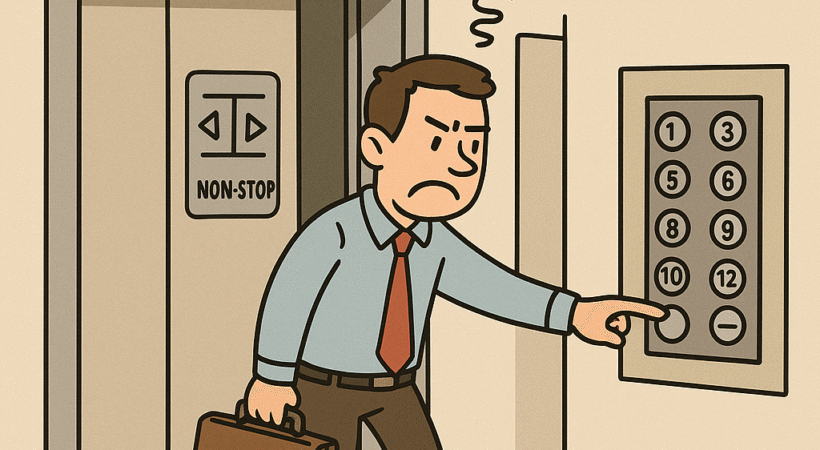A darkly ironic and emotionally charged story, The Confessions: A Wife’s Irony of Equality explores modern marriage through sarcasm, humor, and uncomfortable honesty. Told from a wife’s perspective, it unpacks gender roles, entitlement, and emotional awakening in a relationship collapsing under its own version of “fairness.”
The Confessions Begin
I should start by saying I am not the villain here. At least, not intentionally. The confessions are supposed to make me sound guilty, but really, I am just honest. My husband, Raj, and I have been married three years. He is thirty, I am twenty-nine, and we both work full time. I call that equality.
“Marriage should be fifty-fifty,” I always say. Fifty percent him, fifty percent me, except money. That part is his department. He pays for rent, groceries, utilities, and all the invisible bills that magically keep Wi-Fi working and lights glowing. I save my salary for the future. My future.
Inside, I always think, “Isn’t that what men are supposed to do? Provide?” But if you say that out loud, the feminists glare like you have just quoted the 1800s.
Sometimes I look at Raj balancing bills at the kitchen table, lips pressed tight, calculator blinking judgment. “Don’t look at me like that,” I joke, “you would miss me if I stopped making your life exciting.” He does not laugh. His silence feels like a mirror I do not want to face.
Also read: A Woman’s Emotional Awakening
Domestic Equality
We both get home around eight. I drop my bag, he drops his exhaustion. Then comes the nightly debate: who cooks dinner?
“You could at least start the rice,” he says.
“You could appreciate that I worked all day too,” I shoot back.
“You did not pay for anything today.”
That one always stings. It is not the words, it is the truth inside them, the one I refuse to admit. I stir the pot angrily just so he can hear the spoon clatter against the metal. “Cooking is not free labor,” I mumble, half hoping he will hear, half praying he will not.
In my head, I rationalize: I do emotional labor. That counts for something. I am the one who remembers his mother’s birthday, who buys gifts for his boss, who makes sure the house does not collapse under emotional dust. That is work too, is it not?
Also read: The Forbidden Heartbeat
The Confessions of a Modern Wife
Sometimes, when he is asleep, I stare at him and wonder how long before resentment curdles into something unspoken. The confessions I whisper to myself at night are not glamorous. They are small and mean.
“I am tired of pretending I am grateful,” I whisper.
“I am tired of acting like paying bills makes him a saint.”
“I am tired of guilt disguised as love.”
The words sound brave, but in the dark, bravery feels like selfishness wearing perfume. I know how I sound. Entitled. Lazy. But is not modern marriage supposed to be about fairness? Equality?
I scroll through social media, reading posts by women who say, “Split everything equally.” I nod along, ignoring the uncomfortable fact that I am living the opposite of what I preach. “I will do better tomorrow,” I tell myself. Tomorrow never arrives.
Also read: The Story of My Struggle: Wanting a Child Without a Traditional Family
The Chore Wars
Saturday mornings are silent wars fought with cleaning supplies. Raj vacuums like a man preparing for battle. I sip coffee, pretending to research investments.
“You could dust a little,” he says.
“You could stop acting like my father,” I snap.
His face hardens. That is when I realize sarcasm is cheaper than therapy.
Inside, my thoughts are less funny. “If I start helping now, he will expect it every weekend.” Equality, it turns out, is a slippery slope.
He cleans quietly after that, the vacuum roaring like accusation. I retreat to my phone, scrolling reels of perfect couples cooking together, laughing over burnt pancakes. I want to comment, “Fake,” but I know envy when I feel it.
Also read: Is It Difficult to Fall in Love Once You Turn 30?
The First Crack
Last week, he came home late. No explanation, no message. Just silence.
“You could not text?” I asked.
“You could not cook?” he replied.
That one hit like a slap made of truth. I laughed too loudly. “Very funny, Raj. You are really turning into a comedian.”
But in his eyes, there was not humor. Just distance. Cold, clean distance.
That night I lay awake, listening to him breathe beside me. I wondered if this was what losing love sounded like, steady, rhythmic, indifferent.
“He will come around,” I told myself. “He always does.” But he did not.
Also read: Torn Between Love and Duty
The Confessions of Denial
Work is my escape. My colleagues call me “independent.” If only they knew the irony.
“You are so lucky, Priya,” my coworker Mira said. “Your husband takes care of everything.”
“I know,” I said sweetly, while my inner voice hissed, “Luck feels a lot like dependency.”
Every day I pretend to be empowered while silently outsourcing my security. The more I pretend, the more the act becomes real. It is amazing how delusion can masquerade as feminism when it is convenient.
The confessions I never tell anyone:
- I like not paying bills because it makes me feel cared for.
- I resent him for reminding me of it.
- I fear one day he will stop.
Also read: Life After Divorce: A Tale of Love, Betrayal, and Loneliness
The Dinner That Broke Us
It happened on a Wednesday. I made spaghetti, burnt but edible. Raj came home later than usual. He looked resigned.
“We need to talk,” he said, pulling out a chair.
“If this is about dishes, I swear I will scream.”
“It is not about dishes.”
I laughed. Nervous laughter is my default defense mechanism. “Then what? My spending? You hate my shoes again?”
He did not smile. “I am tired, Priya. Not physically. Just tired.”
Something inside me twisted. “You are tired? You think I am not?”
“You are tired from saving your money while I work myself numb?”
His voice was not angry. It was worse, quiet. Final.
“You do not want equality. You want comfort.”
I opened my mouth to argue, but the words evaporated. The truth hung between us like steam from the spaghetti, impossible to grasp, impossible to ignore.
Also read: My Husband Doesn’t Love Me: A Story of Struggle in a Joint Family
The Confessions of Realization
That night, I could not sleep. The house felt too clean, too silent. I walked through every room, touching the furniture he paid for. The irony stung.
“Maybe I have been unfair,” I admitted to the mirror. The woman staring back looked unfamiliar, like someone who had practiced self-righteousness until it became muscle memory.
I whispered the confessions aloud, one by one:
“I thought equality meant comfort, not responsibility.”
“I used fairness as a shield for my laziness.”
“I wanted power without cost.”
The words hurt going out. But pain, I realized, is just honesty in disguise.
The Confessions Go Public
A week later, Raj left for his parents’ place to think. I told my friends he needed space. They rallied around me, chanting empowerment slogans, validating every complaint I made.
Inside, my mind whispered, “You are lying to them.”
I started writing the confessions in a private journal. Every entry more uncomfortable than the last. I detailed my resentment, my envy, my performative independence. The more I wrote, the more I saw myself, not as victim, not as villain, but as a woman terrified of mediocrity yet addicted to it.
Also read: The Confessions: A Double Proposal That Shattered Everything
The Mundane Horror
Days stretched into routines. I woke up, made instant coffee, scrolled job postings, watched sunlight fade. Life continued with mechanical precision. The horror was not that Raj was gone, it was how quickly I adapted.
“I am fine,” I told myself. “I do not need him.”
But when the electricity bill arrived in my name, I stared at it like it was a foreign language. That tiny piece of paper felt heavier than any emotional burden I had ever carried.
I paid it, reluctantly. Then I stared at my nearly empty account and whispered, “So this is equality.”
The Confessions of a Slow Awakening
Weeks passed. Raj called once. His voice was polite, detached.
“Are you okay?” he asked.
“I am thriving,” I lied.
After hanging up, I cried over the irony of my own script. I had fought for equality, yet now that I had it, I wanted rescue.
The apartment echoed with my loneliness. Every corner whispered the confessions I could not escape:
“You wanted fairness until it required effort.”
“You mistook dependence for love.”
“You confused entitlement with empowerment.”
Also read: NYC Gunman Targets NFL, Forgets How Elevators Work, Ends in Tragedy
The Uncomfortable Epiphany
One morning, I woke up early. The city outside buzzed with indifferent life. I brewed coffee, washed dishes, folded laundry. No one applauded. No one noticed. Yet for the first time, I did not resent it.
I realized equality was not about splitting chores or bills, it was about owning your life without keeping score.
“I did this,” I whispered to myself, “and I will keep doing it.”
The silence that followed was not lonely anymore. It was earned.
The Confessions Continue
The confessions have not ended. They evolve. Each day, I write a new one in my head:
“Today I did not complain.”
“Today I worked, paid, and cooked without bitterness.”
“Today I understood what partnership means.”
Maybe Raj will come back. Maybe he will not. Either way, the woman waiting for him will not be the same.
Also read: Marrying Non-Virgin Girls in Arranged Marriages: Genuine Questions and Perspectives
Follow Us On Social Media:





1 thought on “The Confessions: A Wife’s Irony of Equality”